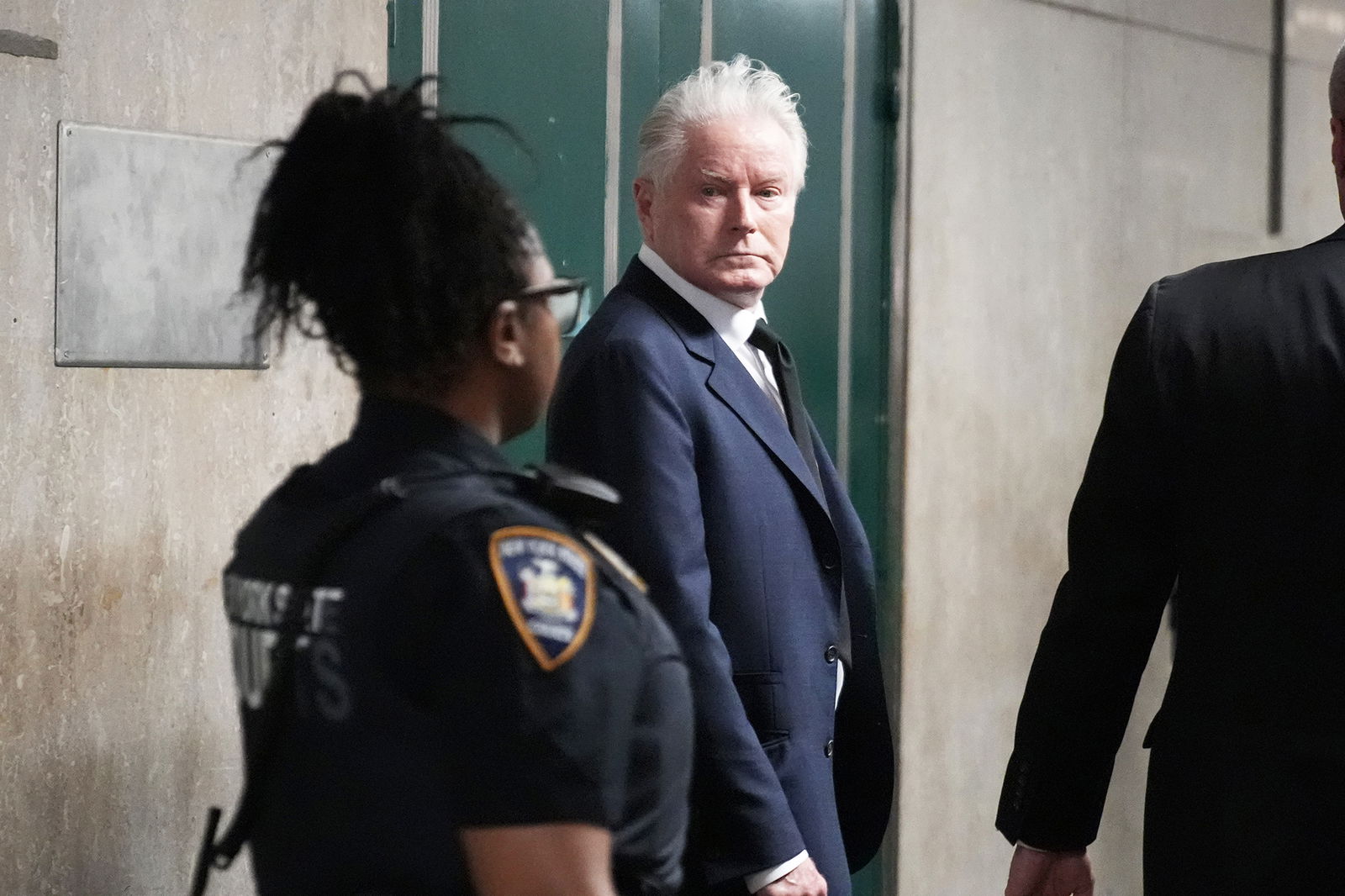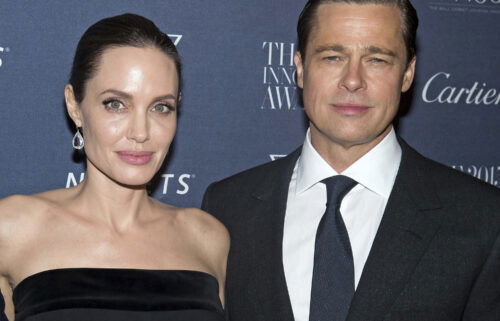Guilty Pleasures

By NewsPress Now
Don Henley tells court he never
gave away drafts
NEW YORK | Don Henley said Monday that he never gave away handwritten pages of draft lyrics to “Hotel California” and other Eagles hits, calling them “very personal” in testimony that also delved into an ugly but unrelated episode: his 1980 arrest.
Henley, the Grammy-winning co-founder of one of the most successful bands in rock history, is prosecutors’ star witness in an unusual criminal trial surrounding the lyrics sheets.
Henley says they were stolen decades ago from his barn in Malibu, California. He testified Monday that he was appalled when the material began turning up at auctions in 2012.
“It just wasn’t something that was for public viewing. It was our process. It was something very personal, very private,” he said in a raspy drawl. “I still wouldn’t show that to anybody.”
The defendants are three collectibles experts who bought the pages years later through a writer who had worked with the Eagles on a never-published band biography. The defense maintains that Henley willingly gave them to the scribe.
Under cross-examination, Henley acknowledged that he didn’t remember “the entirety” of his conversations with the writer, Ed Sanders, who isn’t charged in the case. Nor, Henley said, could he recall whether he gave Sanders permission to take the documents off the property.
But Henley insisted he gave Sanders only access to the documents, not permanent possession of them, in the hopes that a firsthand view of “the time and effort that went into” the lyrics would improve the book.
He said he told Sanders he could look at the pages, ideally at a breakfast table in an apartment upstairs from the barn.
“I never gave him permission to keep those items,” Henley said.
At issue are about 100 sheets of legal-pad paper inscribed with lyrics-in-the-making for multiple songs on the “Hotel California” album, including “Life in the Fast Lane,” “New Kid in Town” and the title track that turned into one of the most durable hits in rock. Famed for its lengthy guitar solo and puzzlingly poetic lyrics, the song still gets streamed hundreds of millions of times a year.
The defendants — rare-book dealer Glenn Horowitz and rock memorabilia specialists Craig Inciardi and Edward Kosinski — have pleaded not guilty to charges including criminally possessing stolen property. Their lawyers say there was nothing illegal in what happened to the lyrics sheets.
The defense has signaled that it plans to question Henley, 76, about how clearly he remembers his conversations with Sanders during an era in which the rocker was living in his own fast lane. In an apparent attempt to defuse some of those questions, a prosecutor brought up Henley’s 1980 arrest.
Henley pleaded no contest in 1981 to a misdemeanor charge of contributing to the delinquency of a minor, after authorities found cocaine, quaaludes, marijuana and a naked 16-year-old girl suffering from an overdose at his Los Angeles home the prior November. He was sentenced to probation and a $2,500 fine, and he requested a drug education program to get some possession charges dismissed.
Henley testified Monday that he’d been depressed about the Eagles 1980 breakup and had sought “an escape” by calling for a sex worker that night.
“I made a poor decision which I regret to this day,” he said.
As for his memory, he said, “I can’t tell you what I had for breakfast last Friday morning, but I can tell you where we stayed when we played Wembley in 1975 and we opened for Elton John and the Beach Boys,” referring to London’s Wembley Stadium.
Sanders began working with the Eagles in 1979 on a band biography that never made it into print. He sold the documents to Horowitz, who sold them to Kosinski and Inciardi. Kosinski has a rock ‘n’ roll collectibles auction site; Inciardi was then a curator at the Rock & Roll Hall of Fame.
In a 2005 email to Horowitz, Sanders said Henley’s assistant had sent him the documents for the biography project, according to the indictment.
Henley reported them stolen after Inciardi and Kosinski began in 2012 to offer them at various auctions.
Henley also bought four pages back for $8,500 in 2012. He testified that he resented having to buy back what he contends was his own property. But he said he saw it as “the most practical and expedient” way to get the auction listing, which contained photos of the lyrics sheets, off the internet.
Kosinski’s lawyers, however, have argued that the transaction implicitly recognized his ownership.
Meanwhile, Horowitz and Inciardi started ginning up alternate stories of how Sanders got hold of the manuscripts, Manhattan prosecutors say.
Among the alternate stories were that they were left behind backstage at an Eagles concert, that Sanders received them from someone he couldn’t recall, and that he got them from Eagles co-founder Glenn Frey, according to emails recounted in the indictment. Frey had died by the time Horowitz broached that last option in 2017.
Sanders contributed to or signed onto some explanations, according to the emails. He hasn’t responded to messages seeking comment about the case.
Kosinski forwarded one of the various explanations to Henley’s lawyer, then told an auction house that the rocker had “no claim” to the documents, the indictment says.
Henley has been a fierce advocate for artists’ rights to their work. Since the late 1990s, he and a musician’ rights group that he co-founded have spoken out in venues from the Supreme Court to Congress about copyright law, online file-sharing and more. As recently as 2002, Henley testified to Congress to urge copyright law updates to fight online piracy.
Henley also sued a Senate candidate over unauthorized use of some of the musician’s solo songs in a campaign spot. Another Henley suit hit a clothing company that made t-shirts emblazoned with a pun on his name. Both cases ended in settlements and apologies from the defendants.
Henley also testified to Congress in 2020, urging copyright law updates to fight online piracy.
Alec Baldwin to stand trial this summer on ‘Rust’ shooting charge
SANTA FE, N.M. | A New Mexico judge has set a trial date for Alec Baldwin on an involuntary manslaughter charge stemming from the 2021 deadly shooting on the set of the Western movie “Rust.”
The scheduling order entered Monday calls for jury selection to begin July 9, with the trial starting the following day with opening statements by special prosecutors and Baldwin’s defense attorneys. The proceedings are expected to last eight days.
Baldwin, the lead actor and a co-producer on the film, pleaded not guilty in January, the day before he was scheduled to be arraigned. A grand jury had indicted him after prosecutors received a new analysis of the revolver he was using during filming, renewing a charge that prosecutors originally filed and then dismissed in April 2023.
Baldwin was pointing the gun at cinematographer Halyna Hutchins during a rehearsal on the set outside of Santa Fe when the gun went off, killing her and wounding director Joel Souza.
Baldwin has said he pulled back the hammer — but not the trigger — and the gun fired. The subsequent analysis concluded that “the trigger had to be pulled or depressed sufficiently to release the fully cocked or retracted hammer of the evidence revolver.”
The revolver also is the subject of testimony in the case of Hannah Gutierrez-Reed, the weapons supervisor who is on trial for involuntary manslaughter and a charge of tampering with evidence. Her trial resumed Monday in Santa Fe with testimony from an FBI firearms expert.
The proceedings against the armorer hold implications for Baldwin, who faces up to 18 months in prison if convicted.
Baldwin remains free pending trial under conditions that include not possessing firearms, consuming alcohol or leaving the country. Baldwin can have limited contact with witnesses when it comes to promoting “Rust,” which has not been released for public viewing. Baldwin is prohibited from asking members of the “Rust” cast or crew to participate in a related documentary film.
Proof copy of Harry Potter book sells for more than $13,000
LONDON | A proof copy of the first Harry Potter novel that was bought for pennies in a second-hand bookshop almost 30 years ago has sold at auction for $13,900.
British auctioneers Hanson’s said Monday that the first-edition copy of “Harry Potter and the Philosopher’s Stone,” which states “uncorrected proof copy” on the cover, was bought in 1997 from a shop in south London with two other books for a total of $0.50.
The seller, who was not named, picked up the book about the famous boy wizard as a “throw-in” with other titles and didn’t read it or pay much attention to it for years — until she read online about the high prices some Potter copies achieved, Hanson’s said.
The book was sold to a private U.K. buyer on Wednesday for a hammer price of 11,000 pounds, and a total of 14,432 pounds including a sales premium.
Jim Spencer, head of books at the auction house, said the copy’s inside title page mistakenly stated the author’s name as “J A Rowling” instead of J.K. Rowling.
“This book so deserved to do well. This proof copy is where the Harry Potter phenomenon began. This is the very first appearance in print of the first Potter novel,” Spencer said.
Adidas sells
another batch of Yeezy sneakers
FRANKFURT, Germany | Shoe and sports clothing maker Adidas said Monday it had started a third sale of the Yeezy sneakers it was left with after severing ties with Ye, the rapper formerly known as Kanye West.
The company has accompanied the sales with donations to groups fighting antisemitism and other forms of hate.
Adidas broke up with Ye in October 2022 over his antisemitic and other offensive comments. It has sought a way to responsibly dispose of 1.2 billion euros worth of unsold shoes. The company said it plans to release the remaining Yeezy inventory in the course of this year.
The company said the latest release started Monday on digital platforms. The range available will be products from 2022 including what Adidas said were some of its most popular designs.
Last year Adidas earned 750 million euros ($813 million) in revenue from two Yeezy releases, down from 1.2 billion euros in 2022.
The company spent months looking for a solution. Burning the shoes was ruled out, restitching them to hide the brand rejected as dishonest, and giving them away could have created a resale market. Instead it decided to sell them and donate part of the proceeds.
Adidas has made donations to the Anti-Defamation League and the Philonise & Keeta Floyd Institute for Social Change, run by social justice advocate Philonise Floyd, the brother of George Floyd.
Shoes sold directly by Adidas in North America included blue square pins established by Robert Kraft’s Foundation to Combat Anti-Semitism as a symbol of solidarity in rejecting antisemitism.
—From AP reports



